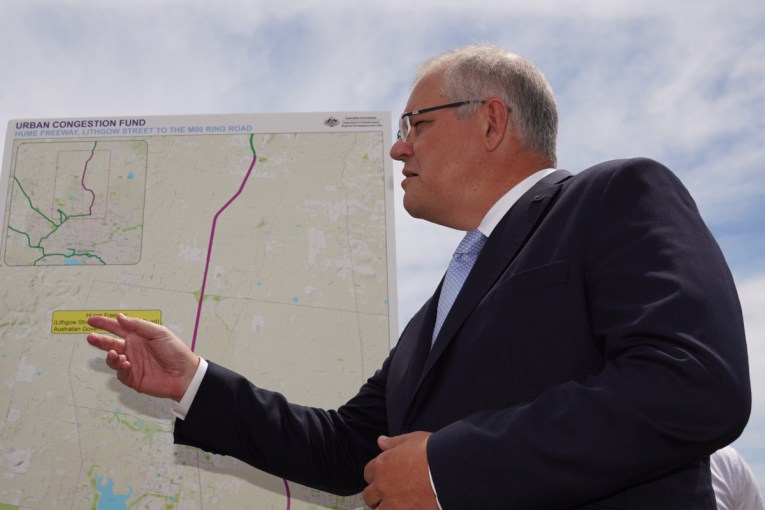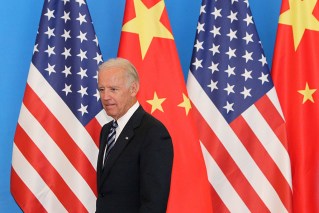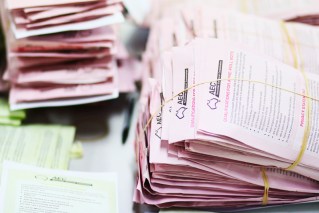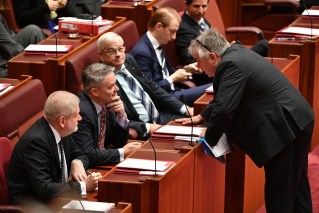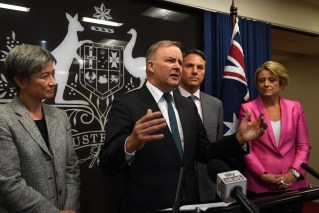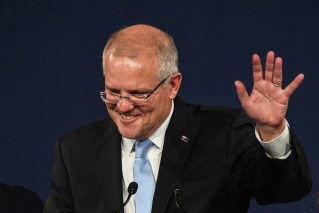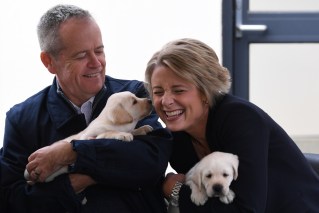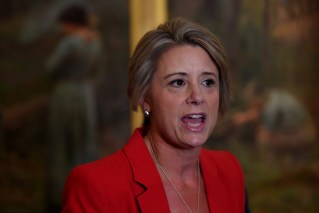First Chinese-Australian MP claims majority seat for Coalition
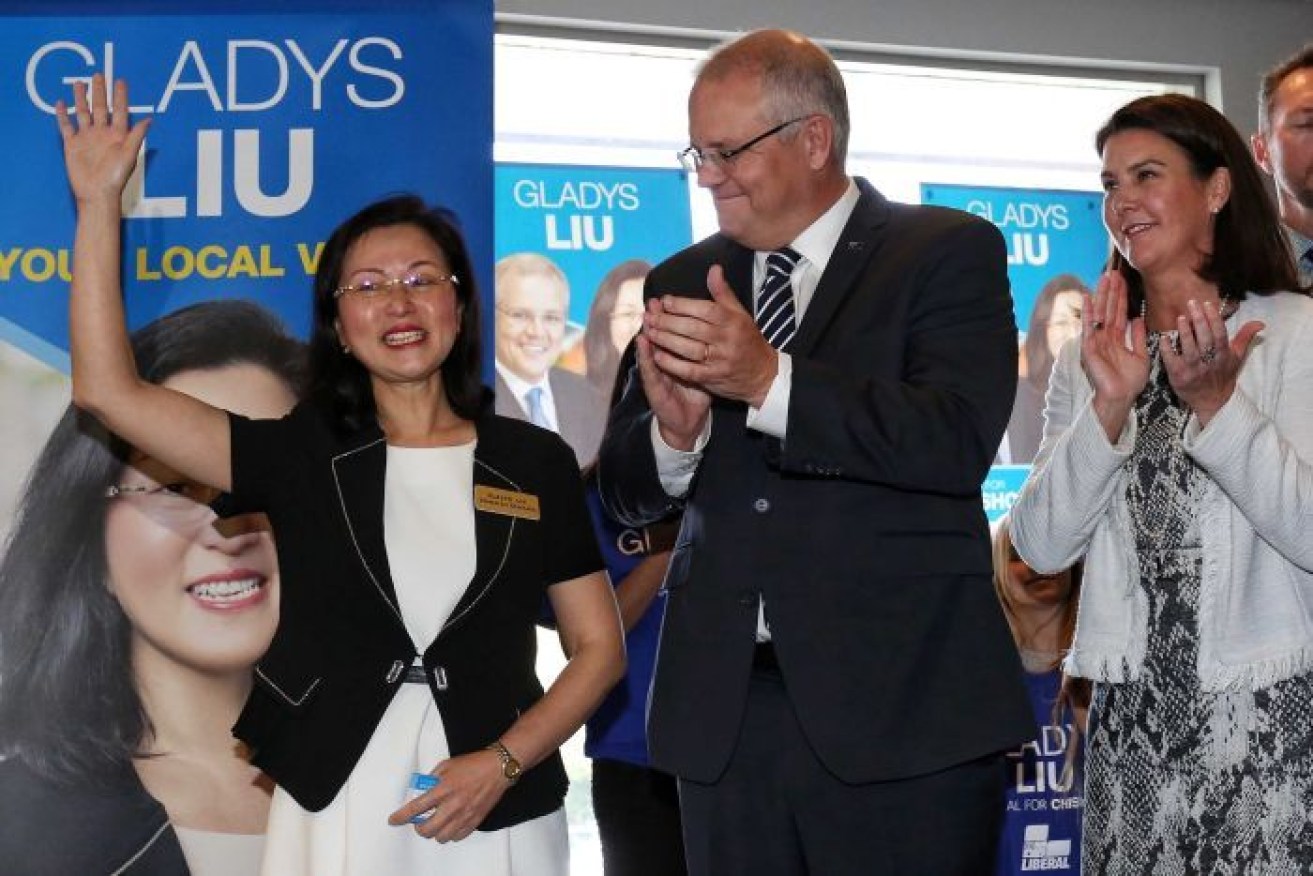
The Prime Minister is steadfastly backing Glady Liu. Photo: ABC
After a frenetic campaign and a long count, Chisholm has finally made history.
Liberal Gladys Liu will become the first Chinese-Australian woman to sit in Federal Parliament’s Lower House after notching a surprise victory in the suburban Melbourne seat, securing Scott Morrison a majority Government.
It wasn’t meant to be this way. A few months ago Coalition strategists had almost written off Ms Liu’s chances.
The sitting MP Julia Banks had already damaged the Liberals and infuriated branch members when she spectacularly quit the party for the crossbench.
And Labor’s confidence quickly grew as Ms Liu’s campaign was battered by seemingly endless controversies.
First the Prime Minister had to defend his candidate after Ms Liu found herself in hot water over comments she made about same sex marriage in 2016.
Then she became enmeshed in a series of bewildering minor scandals, including an abusive online post about Jennifer Yang written by Ms Liu’s sister, and confusion over whether Ms Liu was still a multicultural ambassador for the AFL.
The constant barrage of headlines clearly frustrated Ms Liu, who suspected her political enemies were trying to sabotage her campaign.

The Liberals’ Gladys Liu and Labor’s Jennifer Yang were appealing to voters of Chinese heritage during the federal election campaign. Photo: ABC
“The negative news always came out of thin air,” she told the ABC on election day.
“It must have been started by someone and incited by someone.
“No matter who it is or what the motive is, it is aimed at distracting me from my campaign.”
All the noise might have taken some paint off the Liberals, with voters delivering a swing of around 2.2 per cent to Labor.
But that wasn’t enough for Ms Yang, who is now trailing by more than 1,200 votes with more than 80 per cent of the vote counted.
That means Ms Liu looks set to hand the Coalition its crucial 76th seat in the Lower House.
Campaign to rally Chinese-Australian community support
Chisholm wasn’t only the tightest lower house contest in Victoria; it was also a fascinating test of which major party is winning the battle for hearts and minds in a nation transformed by immigration.
Both Labor and the Coalition mounted an intense campaign for votes inside the seat’s large Chinese-Australian community.
Analysts mused about how the foreign interference debate or the Coalition’s hawkish stance towards Beijing might sway the outcome, but those who knocked on doors in Chisholm say most Chinese-Australians were firmly focused on issues closer to home.
In the end, hostility to Labor’s flagship economic promises — particularly its plans to curb negative gearing and overhaul franking credits — poisoned Ms Yang’s chances.
Like many other voters in Chisholm, large numbers of Chinese-Australians worried that Labor’s policies would unfairly punish pensioners or drive down house prices that have already tumbled in the past year.
ALP campaigners accuse the Coalition of running a scare campaign on both fronts.
Ms Yang said on election day that plenty of locals had concerns about Labor’s agenda, but “unfortunately, we are unable to reach all the voters who have perhaps believed the wrong information.”
There’s also raw frustration in Labor about the way campaign headquarters handled the hostility.
“The franking credits [policy] ruined us in Chisholm, negative gearing [policy] ruined us,” said one Labor party official.
“We wanted to run lines against the Liberals, but we were just told — ‘don’t respond, pivot to something else.’ It didn’t work.”
Politicians used Chinese social media app to sway voters
Both Labor and the Coalition also took to Chinese social media sites like WeChat to woo voters, with heavyweights from both major parties spruiking their agenda.
But WeChat was also a petri dish for fake news and misinformation.

Politicians on both sides reached out to Chinese voters using the social media platform WeChat. i>Photo: ABC
Some users accused Labor of planning to introduce a massive inheritance tax, while another circulated doctored tweets from “Bill Shorten” declaring that Labor would boost migration from the Middle East.
Others claimed falsely that the ALP would bring in more than one million refugees over a decade if it won power.
Labor accused the Coalition of orchestrating a “desperate scare campaign” and wrote to WeChat’s parent company two weeks before election day to complain. But in private they admitted there was little they could do.
Pinning down who was behind the posts was difficult. Last week the ABC revealed that some of the WeChat users spreading fake news had travelled to Parliament House with Ms Liu to meet Liberal politicians.
But Ms Liu insisted the WeChat groups they set up were not part of her campaign for Chisholm, and she could not control what her backers said on social media.
“I do have many supporters in the Chinese and the broader community, as do my opponents, and I don’t think it’s either fair or reasonable to expect me or anybody else to monitor or sanction the activities on social media,” she said.
Unsurprisingly, the campaign ended in a final spasm of controversy after the Coalition printed Chinese language posters in the distinctive purple tones of the Australian Electoral Commission instructing locals how to vote Liberal.

The Coalition printed Chinese language campaign posters. i>Photo: ABC
Ms Yang accused the Coalition of trying to mislead new arrivals by implying the Liberal Party enjoyed formal backing from the federal bureaucracy.
“The poster was trying to pretend it was coming from the authorities, which in some way does have a huge influence on ethnic communities, especially for first migrants’ communities,” she said.
But the Australian Electoral Commission said the posters didn’t break any laws, and refused to investigate.
‘The problem is deeper than just this campaign’
Unsurprisingly, both major parties draw different lessons from the battle for Chisholm.
The Coalition is buoyed by its victory and believes it is a harbinger of good things to come.
One Liberal Party source argues Labor’s traditional hold on many migrant communities is loosening. He says the Chisholm result shows how many Chinese-Australian community are drawn to the Coalition’s promise of reward for aspiration.
“The lesson here is that our core message resonates in this community,” the source said.
“It’s not monolithic, that’s what Labor assumed for years. But if you have a sophisticated campaign that uses the right channels to get our key messages across, people respond to that.”
Labor is still incensed about the result. Strategists say that Ms Liu stayed competitive by running scare campaigns and only managed to eke out a victory because of the persistent and deliberate misinformation circling on WeChat and other platforms.

Gladys Liu will be the first Chinese-Australian to take a seat in Parliament’s Lower House. i>Photo: ABC
“Of course it was deliberate. At the very least the Liberals turned a blind eye,” said one ALP source.
“It wasn’t the crucial factor but it cost us, and look at the [small] margin — it was decisive.”
“The problem is deeper than just this campaign, and it’s not limited to WeChat. Fake news thrives on social media, and we have to work out how we counter that next time.”
But that’s next time.
Right now, Gladys Liu is coming to Canberra.
